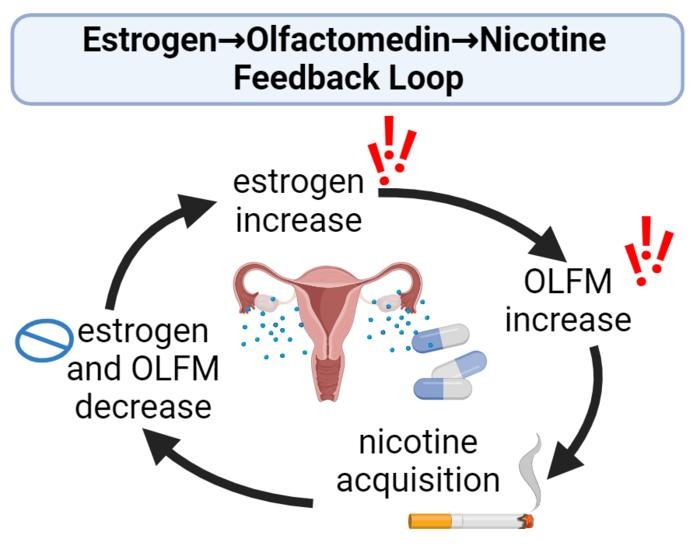Published on
Updated
Reading 2 min.
Although more men smoke than women, women become more easily addicted to cigarettes. American scientists recently discovered the reason.
In France, according to the latest figures observed, 27.4% of men smoke, compared to 21.7% of women. However, women are more likely than men to become addicted to cigarettes, according to a recent study. And all this would be linked to the estrogens produced in women.
Estrogens contribute to the feeling of nicotine withdrawal
So, men have a limited natural amount of estrogen in their body. But women produce it at much higher levels, which fluctuate every 28 days during stages of their menstrual cycle. And these hormones would not be unrelated to nicotine addiction. To arrive at this conclusion and unravel the mechanism at play, the researchers carried out a real investigation.
Scientists used large sequencing data sets to identify genes expressed in the brain that exhibit hormonal function. They found only one class of genes meeting these criteria: those coding for olfactomidins. They then carried out a series of studies on human uterine cells and rats to better understand the interactions between olfactomidins, estrogens and nicotine.
Their results suggest that estrogen activation of olfactomidines – which is suppressed when nicotine is present – could serve as a feedback loop to drive nicotine addiction processes by activating areas of the brain’s reward circuitry such as nucleus accumbens.

Schematically, estrogen induces the expression of olfactomidines, proteins suppressed by nicotine in key areas of the brain involved in reward and addiction.
Men try harder, but women hold on harder
The findings reveal that estrogen, the female sex hormone, may make a person’s brain more sensitive to the effects of nicotine in cigarettes – and therefore more likely to become addicted. However, studies show that men are more likely to try smoking, which partly explains why there are more male smokers than women.
“These studies show that women have a greater propensity to develop nicotine dependence than men and that they are less successful in quitting smoking,” said Sally Pauss.
“If we can confirm that estrogen stimulates nicotine seeking and consumption through olfactomidines, we can design drugs that can block this effect by targeting the altered pathways. We hope these medications will make it easier for women to quit nicotine” specifies the main author, Sally Pauss.
Additionally, this knowledge could be helpful to those taking estrogen in the form of oral contraceptives or hormone replacement therapy, which could increase the risk of developing nicotine use disorder.
The research was presented at the annual meeting of theAmerican Society for Biochemistry and Molecular Biology.
